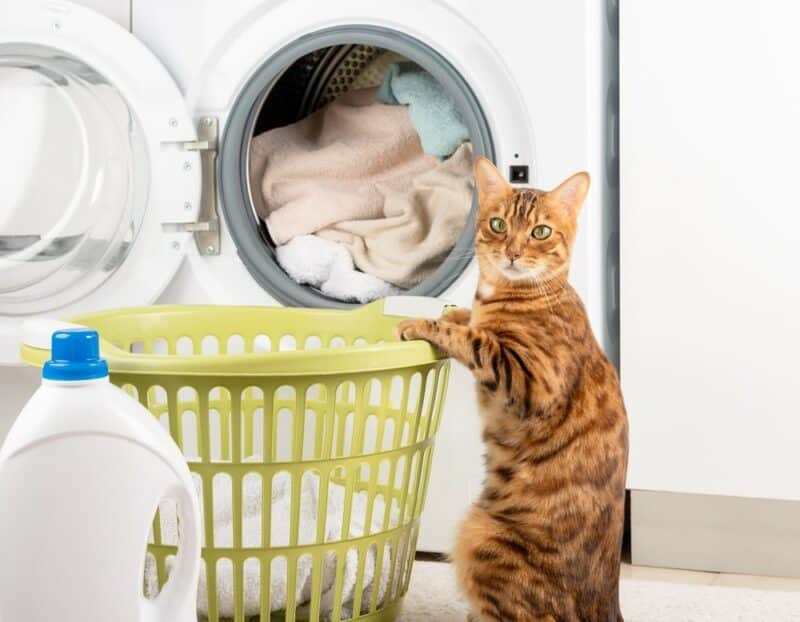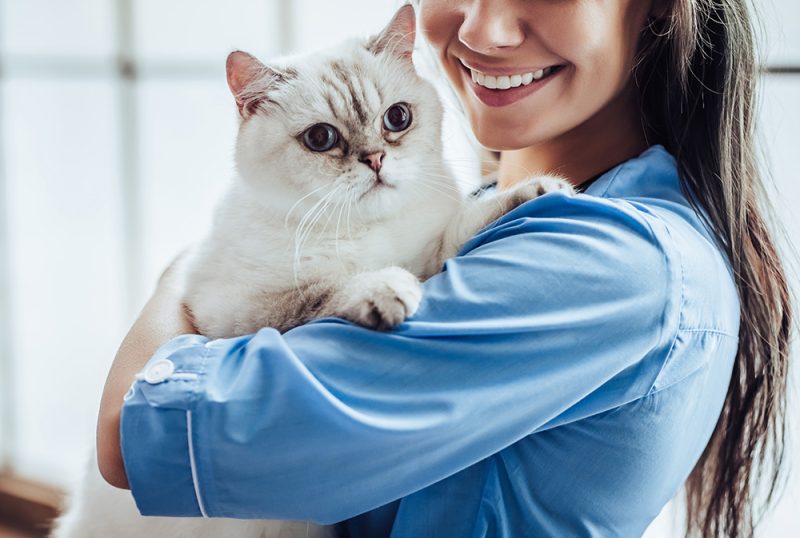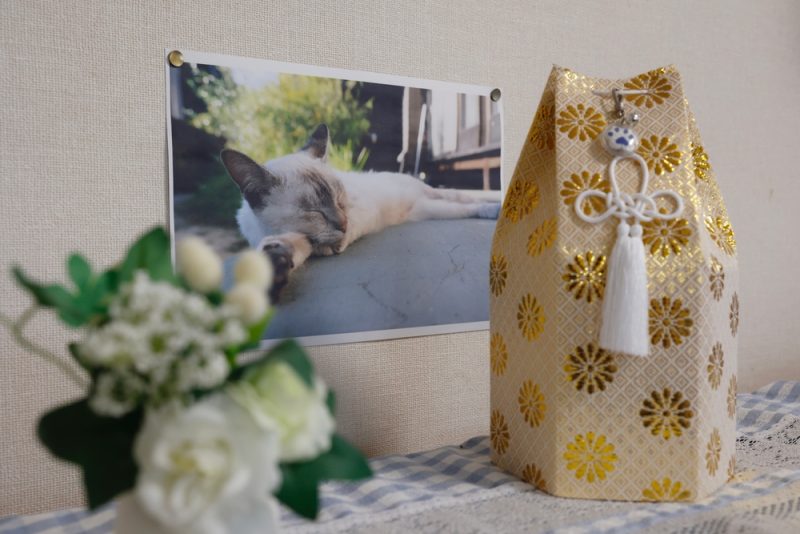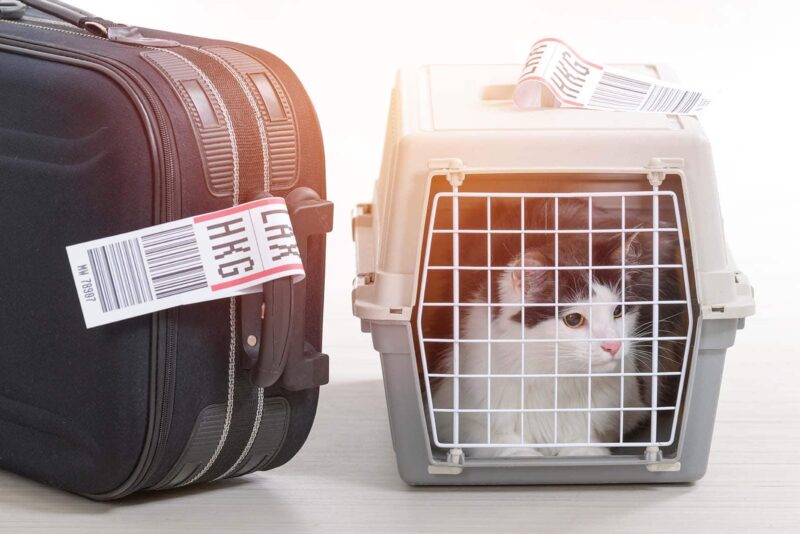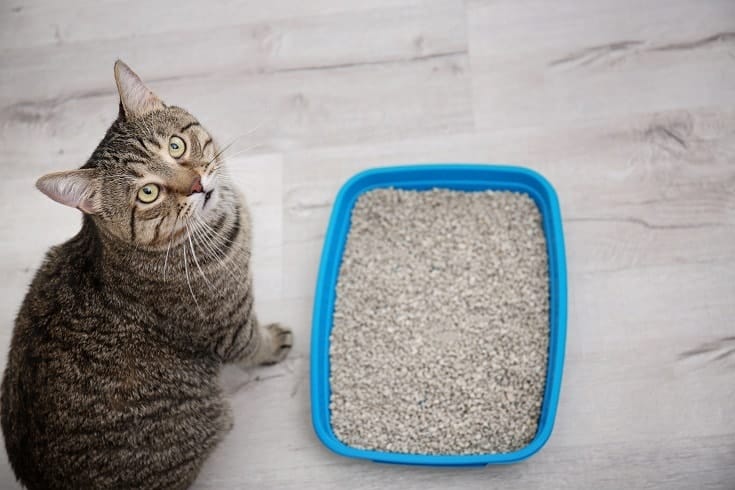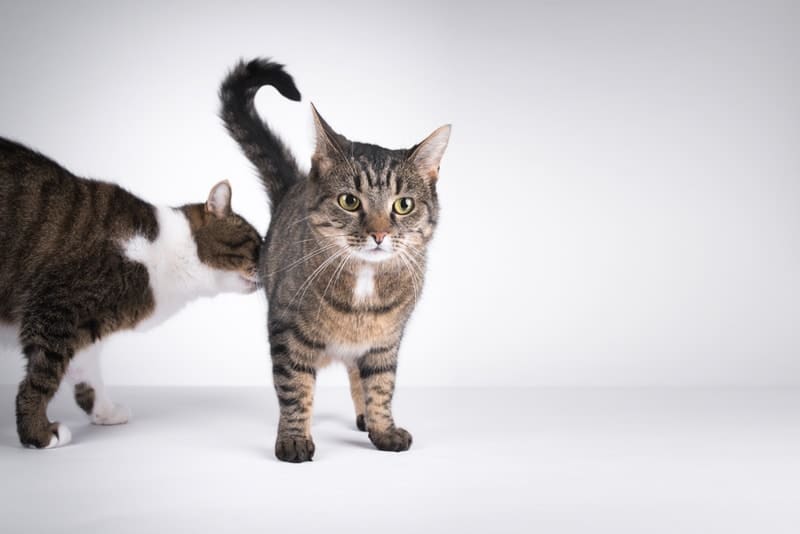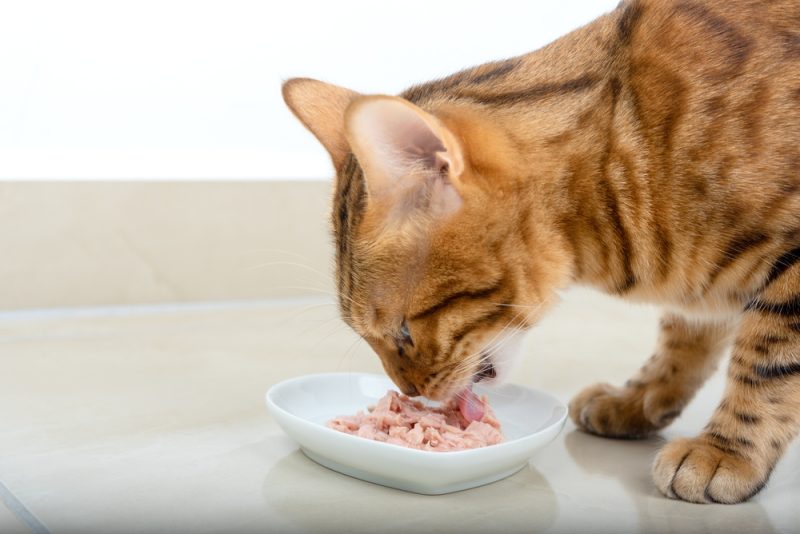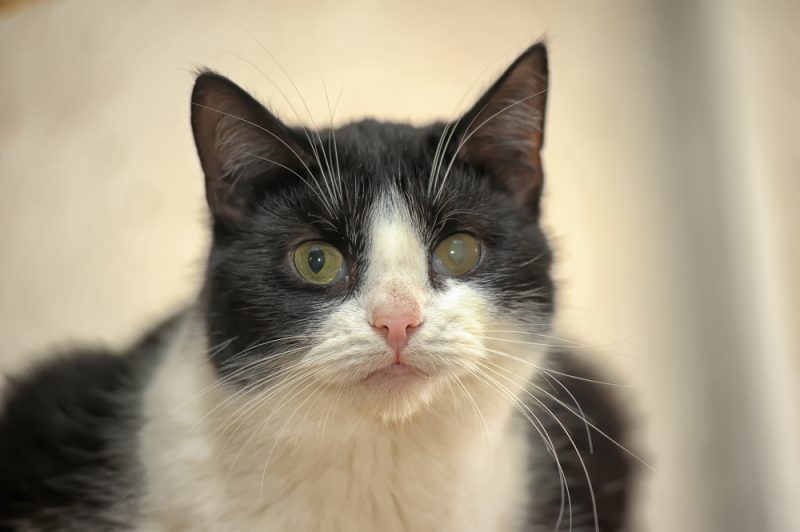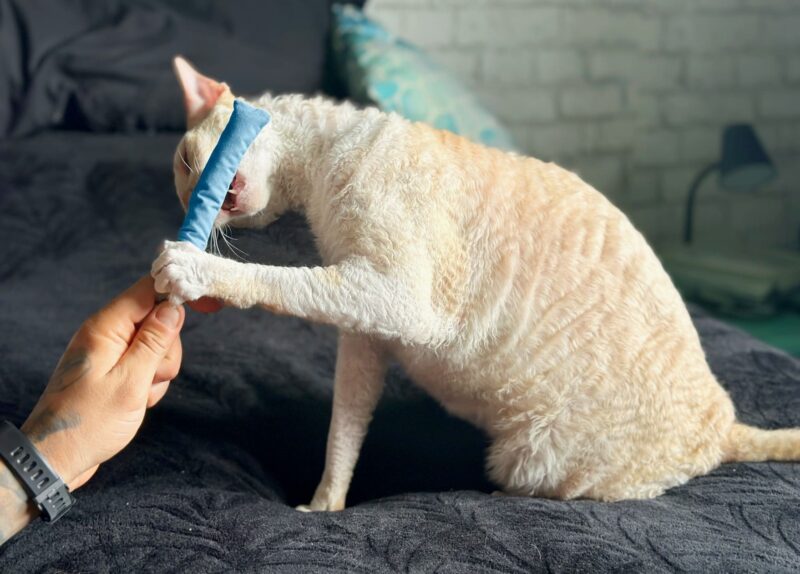In this article
View 2 More +Just like you should wash your bedding every week or two, the same is true for your cat’s bedding. Ideally, you’ll want to wash it once a week, but if they don’t spend all that much time using it, you might be fine with washing it once every 2 weeks.
Taking the time to wash their bedding will keep it smelling nice and fresh, and it can help keep your cat healthy. Just like you enjoy climbing into a bed with fresh, clean sheets, your cat likely will too!
Product Recommendation
When cleaning your pet’s bedding, it’s essential to use the right cleaning products that are both pet-friendly and effective at removing stains, odors, and bacteria. An enzyme-based cleaner is a particularly good option for spot-cleaning, especially for urine stains and odors.
Did you know there's an enzyme cleaner that does it all? The Hepper Advanced Bio-Enzyme Pet Stain & Odor Eliminator Spray permanently removes the very worst smells and stains (truly, everything you can imagine!), and they offer a 100% satisfaction guarantee! Click here to get yourself a bottle.
- ADVANCED ENZYMATIC CLEANER - Penetrates the most stubborn smells and stains at the deepest molecular...
- FOR ANY MESS, ON ANY SURFACE - This pet odor eliminator cleans your carpets, floors, furniture,...
- FRESH, NATURAL ODOR - Our unique formulation doesn't rely on dangerous or unpleasant chemical...
At Catster, we’ve admired Hepper for many years, and decided to take a controlling ownership interest so that we could benefit from the outstanding products of this cool cat company!
Why You Should Wash Your Cat’s Bed
Just like you need to wash your bedding to keep it clean and smelling fresh, the same is true for your cat’s bedding. But the truth is that there are multiple reasons you need to frequently and consistently wash your cat’s bedding.
- Unpleasant odors. It’s not pleasant to have these emanating from your cat’s bed (they could also hint at underlying health issues for your cat)
- Allergies. If you are allergic to cat dander, you would want to frequently wash their bed, as places where your cat sleeps often harbor a high amount of pet dander.
- Decontamination. If a harmful aerosol is used near your cat’s bed, it may linger on the bed and harm your cat. For example, essential oil droplets that spread around a room by a diffuser may collect on your cat’s bed. This warrants washing the bed.
- Parasite eradication. Many parasite control protocols involve treating your pet and thoroughly cleaning their environment too. Fleas and mites may inhabit your cat’s bed, as it offers plenty of dark, cool crevices to hide in and is an area their host (your cat) frequently visits.
- Urination or defecation. If your cat had an accident in their bed, it would definitely need to be washed. Please note that missing the litter box isn’t normal, and your cat will definitely need veterinary care if you observe them using their bed to relieve themselves.
- Soiled bed. If the bed is soiled for any other reason (spillage, etc.) you would want to wash it before allowing your pet to reuse it.
- Skin ailment. Certain skin ailments of cats (such as ringworm) are transmittable to humans. To minimize the risk of zoonosis, thoroughly cleaning their bed is recommended.
It doesn’t take all that much work to clean your cat’s bed, so add it to your list of biweekly chores, and stick with it.


How to Wash Your Cat’s Bed
Now that you know all about how often and why you need to wash your cat’s bed, all that’s left is for you to figure out how to do it. The good news is that it’s a pretty straightforward process, and we’ll walk you through everything you need to know here.
1. Remove the Cover
If your cat bed has a cover, start by removing that. You don’t need to wash the entire bed; you just need to wash the cover your cat is actively using. Of course, once you remove the cover, you need to move the cat bed to a place your cat can’t use until you finish.
If your cat bed doesn’t have a cover, you can skip this step, but you’ll need to be more careful when spot-treating, washing, and drying it.
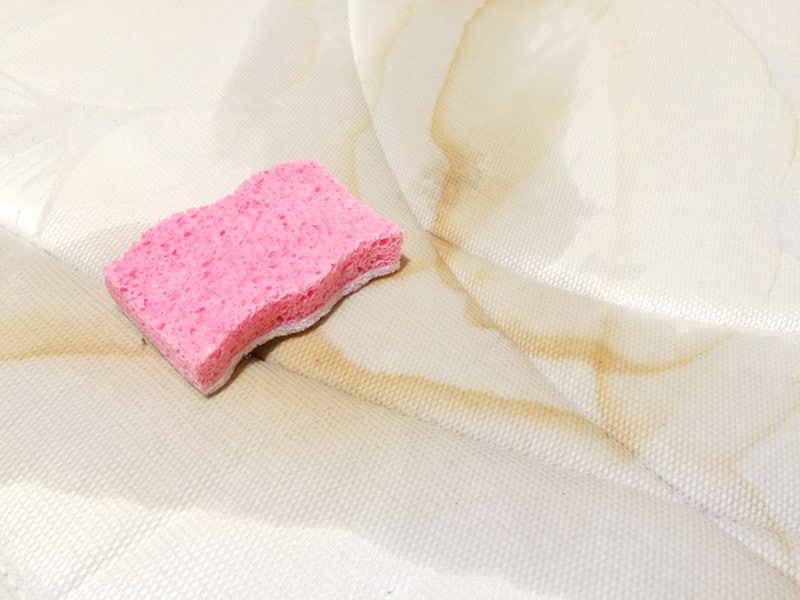
2. Spot Treat
If the cat bed has noticeable spots with stains, dirt, or grime, it’s best to spot-treat it before moving on to the next step. Follow the directions for the spot cleaner you’re using, and ensure that it’s not going to react adversely with the cat bed. You can always go over it with the vacuum hose a few times!
3. Wash and Dry
Before washing the cat bed, take the time to read the label and follow all the directions. If the label doesn’t have directions or if you can’t find them for any reason, stick with an unscented detergent specifically for pets.
Either wash the bed by hand or on a cold cycle on the lowest available setting. From there, only use a dryer on the lowest possible setting if you’re sure it won’t damage the bed. Otherwise, you’ll need to air-dry the cat bed.
If you are using a dryer, we recommend using an unscented dryer sheet to help remove static and pick up any leftover pet hairs. Of course, always clean out the lint trap in the dryer after each use.
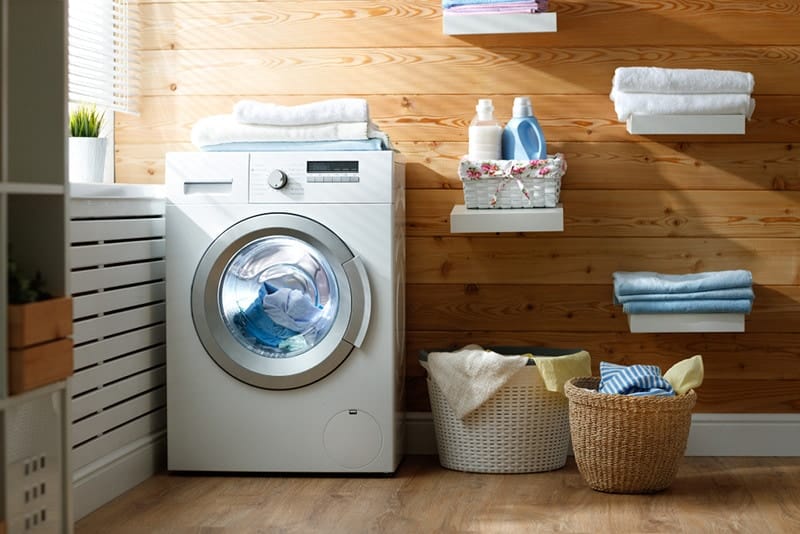

Final Thoughts
It’s something many pet owners overlook and neglect, but taking the time to wash your cat’s bedding every week or two goes a long way in keeping them happy, healthy, and smelling great. Even better, it really doesn’t take all that long, so once you get into the routine, it’s not that hard to keep up with!
Featured Image Credit: Svetlana Rey, Shutterstock
